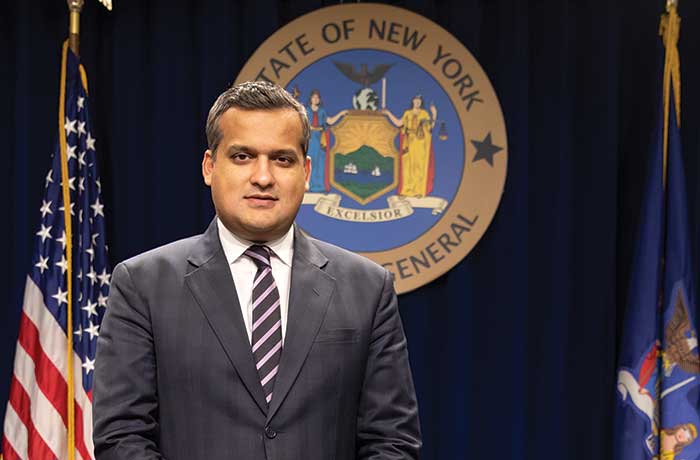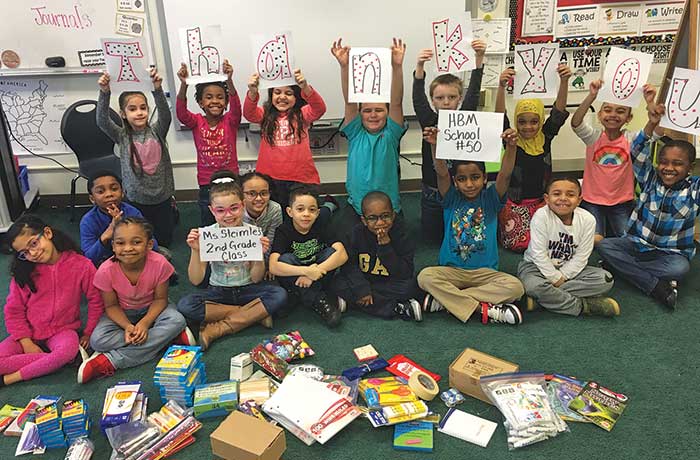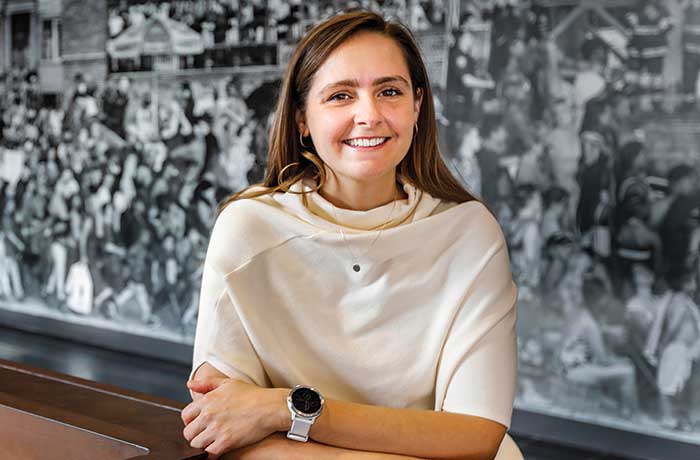Right Place, Right Time
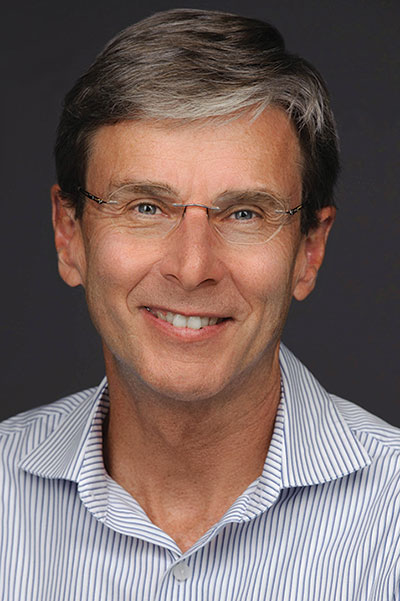
David Fleming’s undergraduate major in biology in the 1970s did more than just teach him what he needed to go on to medical school at SUNY Upstate Medical Center in Syracuse. The University at Albany also helped to prepare him for the extraordinary work he does today to improve the health of children and families all over the world.
“Majoring in biology with UAlbany’s great professors gave me a strong base in science,” Fleming says. But the major required only 30 specific course credits, leaving him “90 credits to take whatever I wanted.” He opted for “very cool” electives in art, drama, creative writing, and “a whole bunch of social sciences, which really prepared me for the work I do.”
Today, Fleming is vice president of Global Health Programs at PATH, an international not-for-profit public-health agency that works in some 70 countries around the world. Before joining PATH in 2014, he served for seven years as director of Public Health for Seattle and Kings County in Washington state. Previous to that, Fleming directed the Bill & Melinda Gates Foundation’s Global Health Strategies Program and also served as the deputy director at the U.S. Centers for Disease Control (CDC).

Fleming’s career has focused on the often glaring disparities in health status among peoples around the globe. “The world has profound inequities in health,” he observes. “In the U.S., we’ve figured out how to make most people live long and healthy lives. The question is, how can we make the same thing happen for people in other countries around the world?”
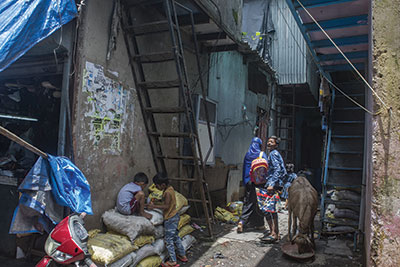
Global public health has changed over the years, Fleming notes. “Fewer and fewer people are dying from infectious diseases. And people are living longer. People are now facing environmental and non-communicable diseases, like diabetes and hypertension.”
One of the many projects that Fleming is working on for PATH involves treating high blood pressure in people living in India’s urban slums, where hypertension is now more common than in the U.S. Typically, these people don’t seek treatment in government clinics; rather, they prefer to see local medical providers who generally have only modest levels of training. Fleming’s work involves providing access to free medications and technical assistance to help set up referral networks so that patients who need more sophisticated medical care can get it.
This treatment system, Fleming adds, was a follow-up to a PATH project to treat people with tuberculosis in these same Mumbai slums. Tens of thousands of TB patients who otherwise would not have been successfully treated received free diagnostic tests and drugs while continuing to see the private provider of their choice. “We decided to take this model for TB and make it work for other, non-communicable diseases,” he says.
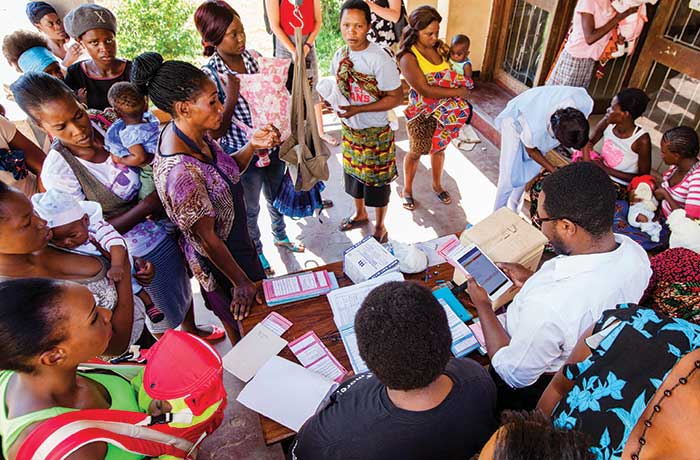
In another PATH campaign recently completed in Zambia and Tanzania, Fleming oversaw the creation of immunization registries using smartphone and other mobile digital technology to record and compile information. “With the old-fashioned paper systems, Tanzania wasn’t able to do much more than immunize the kids who walked in the door.” With the advent of smartphones, however, health providers can now keep track of who was immunized, and for what diseases, and who wasn’t. This system also has enabled providers to monitor the vaccine supply closely.
“If you don’t have a system tracking how much vaccine you have, you can run out of what you need,” explains Fleming.
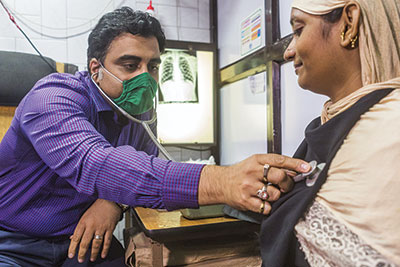
At the Gates Foundation, Fleming also helped to develop a system whereby a group of donor countries and foundations came together to guarantee vaccine manufacturers in advance that if companies produced vaccines for poor children in low-income countries, they would be paid for and used. The pneumococcal vaccine was successfully introduced using this Advanced Market Commitment system. As a result, tens of millions of children were immunized.
Fleming realizes that he has been very fortunate to have a diverse and rewarding career filled with opportunities “to be in the right place at the right time.” But then, he was fortunate with his UAlbany classes and professors, too. Stephen C. Brown, who taught invertebrate zoology, “was unbelievable,” Fleming remembers. “He made me appreciate the sophistication and beauty of life in these tiny animals I’d never given a second thought to before.” Another professor, John Aronson, permitted Fleming to complete a very non-traditional paper that speculated on how transfer RNA operated in the cell to help form amino-acid structures.
When it was time to start thinking about a career during his junior year, Fleming got lucky once again. “I was dead set on being a wildlife biologist,” he recalls. But when he met with his career counselor, she diplomatically asked him if there were a lot of jobs for wildlife biologists. “She asked exactly the right question, because when I went to take a look, to my horror, there were not.” The counselor encouraged him instead to consider graduate school or medical school. Eventually, Fleming chose the latter, and the rest, of course, is history.
Related Stories
Protecting New Yorkers’ Rights
Ibrahim Khan, B.A.'06 graduated from the University at Albany 13 years ago, but his new job as chief of staff for New York State Attorney General Letitia James brings him back to the Capital Region frequently.
“Making a Difference” for Kids in Need
In 2016, after two rounds of downsizing at JP Morgan Chase in Rochester, N.Y., left all his work based in New York City, attorney Howard Grossman, B.S.'77 found himself opting for retirement – and seeking a new challenge to keep him busy in a way more locally based and values driven.
Working for Social Justice
When Jacqueline Burton, B.A.'08 applied for admission to the University at Albany, she received an unexpected offer: a Presidential Scholarship. “I couldn’t refuse,” she says. “It was an honor.”

